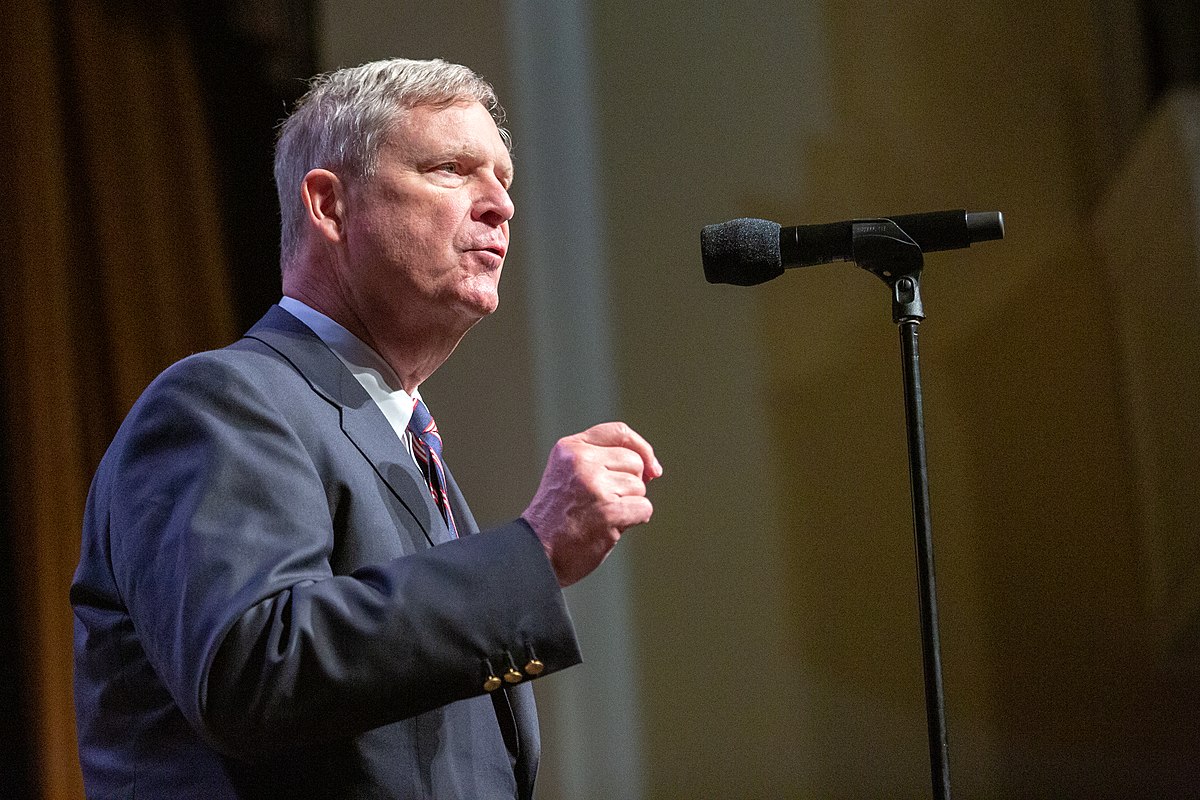Biden has long marketed himself as the unity candidate who could appeal to large swaths of the American electorate. So his selection of his old friend Tom Vilsack as USDA Secretary, whose only unifying characteristic is the disdain he has received from a broad coalition of advocacy groups, is perplexing to say the least.
Tom Vilsack, Obama’s Secretary of Agriculture, has deep ties to corporate interests. After leaving office, he took a lucrative job in the dairy industry and earlier this year accepted a position at Purdue Pharmaceuticals (yes, THAT Purdue). At USDA, he not only failed to tackle corporate consolidation in the agriculture sector but also neglected Black farmers, long discriminated against by the USDA.
Some claim that USDA should be headed by someone who understands farmers and rural America. Someone who can win back the ground lost to Trump and the GOP over the past several years. But if Biden wants to win back rural America and actually build coalitions, putting corporate executives and Big Ag lobbyists in the driver’s seat of agricultural policy is losing strategy. A majority of the American electorate—-from Democrats to Republicans—-are united in one area: they don’t think corporate insiders should be running the government.
Instead of actually tackling long-standing discrimination in the USDA and repairing historical harms (and not just manipulating data to make it seem like he did), Vilsack spent his time in office pushing policies that would help his friends in the corporate agriculture industry. He failed to deliver on GIPSA rules, popular antitrust regulatory policies intended to support independent meat packers struggling to compete against the monopolistic control of corporations like Smithfield, JBS, and Tyson Foods. Regulatory erosion has allowed 4 meatpacking corporations to control 53% of the market, pushing small slaughterhouses out of business. Market concentration has also created supply chain fragility, unsafe working conditions, and an emphasis on export oriented agriculture that sees scant profits for farmers. Vilsack’s sluggish enforcement of GIPSA rules failed to protect farmers who faced price discrimination, abuse of market power, and intimidation from the corporate giants. Bitterness about the administration’s failures to regulate agricultural monopolies still reigns as farmers readily identify Vilsack as a corporate profiteer.
After advising Biden as Secretary of Agriculture under President Obama, Vilsack left the administration to lobby on behalf of the agricultural industry he failed to regulate. As a high paid executive at Dairy Management Inc. — a non-profit dedicated to promoting the dairy industry — Vilsack earned close to a million dollars during his first year on the job while over a thousand dairy farms closed nationwide. The following year another 503 closed in Wisconsin alone and by 2018 the state led the nation in farm bankruptcies.
While dairy farmers faced low profit margins, the Department of Agriculture still collected farmer’s funds through the checkoff program, enriching Vilsack and other lobbyists working for a program that in part funds the operations of Dairy Management Inc. While originally conceived of as an optional program to support the marketing of agricultural commodities, critics of the checkoff system say it unfairly forces failing farms to buttress the profits of big agriculture executives like Vilsack. While “the big get bigger and the small go out,” as current secretary of agriculture Sonny Perdue put it at an industry expo in Madison, WI, Big Ag execs like Vilsack continue to earn profits despite small farmers’ disappearance.
Beyond his dairy connections, Big Ag support for Vilsack runs deep: among his major supporters are the biotechnology industry who named him governor of the year in 2001. Monsanto– a major force in the industry– is notorious for locking farmers into exploitative seed contracts and enforcing their monopolistic control through punishing lawsuits against family farms. The company is also complicit in migrant labor abuses.
Selecting Tom Vilsack as Secretary of Agriculture is a missed opportunity to unify rural voters, farm workers of all backgrounds, and civil rights organizations. A unifying cabinet pick for the USDA should be one that is willing to take on monopolies that hurt family farms as well as support overlooked rural communities like Black farmers and migrant workers. In stark contrast to the monolith, 91% of rural voters agree that corporate lobbyists have too much influence over the government and that Washington corruption must be stopped.
At this point, the best remaining option is harm mitigation. Vilsack needs to reach out to the many groups he has antagonized and truly listen to their concerns. He then needs to turn listening into action by hiring people with different perspectives who can bring a commitment to racial justice and a fresh populist energy into the Department.
A pick like Vilsack is bad politics in a moment where real unity is sorely needed. Unless Biden reconsiders, we’re left hoping Vilsack begins to redress past mistakes in substantive ways.

